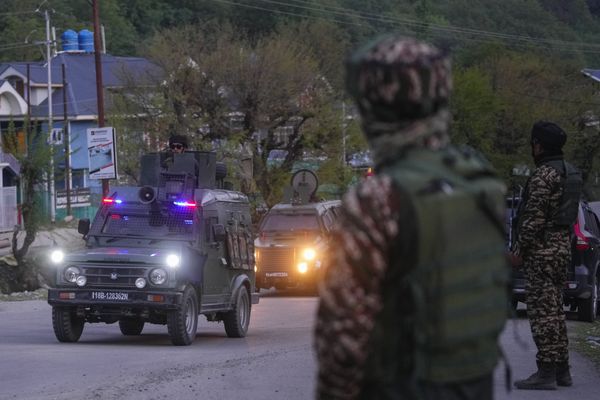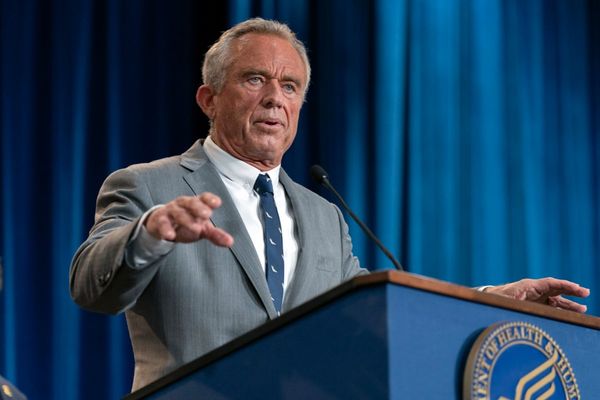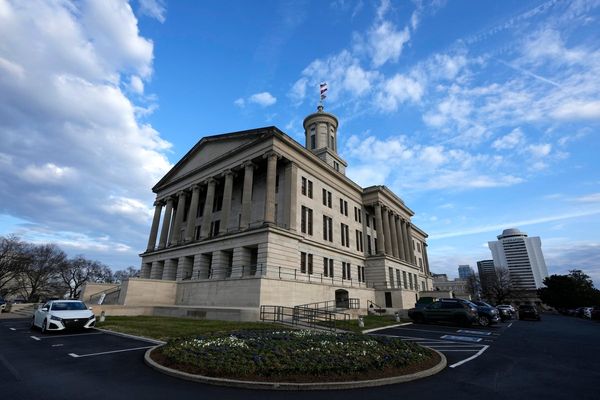The first night of a punishing cold front in January 2018, two people living on the streets of South Dallas died. Others camping underneath the same highway overpass as Jesse Johnson Jr., 69, remembered him as a nice guy who mostly kept to himself. Less than a mile away, a man found Donna Bannister, 58, near her wheelchair on the floor of a bus stop shelter; he told WFAA it appeared she had “frozen to death.”
Rachel Baughman, senior pastor at Oak Lawn United Methodist Church in Dallas, recalled the news as “one of those situations that hits you in the face.” Bannister and Johnson both died within a block of a church.
For the past three years, Baughman has opened her church’s doors on nights when temperatures could be fatally cold—and she’s tried to team up with other faith leaders to build a broader “pop-up” network. But she’s faced a persistent roadblock: In Dallas, it’s against the law. Chapter 51A of the Dallas Development Code bans overnight shelters within 1,000 feet of a church, school, park, or other entity, preventing places of worship and virtually anyone else from offering aid.
Still, some churches choose to take a risk. Wayne Walker, executive director of homeless resource and outreach center OurCalling, says some churches and organizations provide shelter “under the radar” to avoid trouble. On a cold night in February 2018, a month after Bannister and Johnson died, Walker received a code violation for keeping his center open for people without shelter. He hung the letter on the wall in his office.
“There’s just no room in the code right now for an emergency like this,” Walker told the Observer. “People are dying, people are freezing.”
According to Baughman and Walker, there is a rising need for emergency shelter during inclement weather in Dallas, which hasn’t built new shelter beds in over a decade despite a growing homeless population. While city council failed to reform the development code or create an emergency shelter plan in time for winter, officials opened the Kay Bailey Hutchison Convention Center to shelter homeless people on cold nights for the first time last month. The city has kept the convention center open as a shelter for six nights so far. On Friday, the city lowered the threshold temperature for the shelter to operate from 36 to 32 degrees.
According to Monica Hardman, director of Dallas’ Office of Homeless Solutions, the city is working on a long-term emergency shelter plan that would include participation from churches. She says a city commission is scheduled to consider changes to the development code early next year. “What we’ve been doing since November is really just a stop-gap plan,” she says.
Baughman says that, under the current code, the very real possibility of annoyed neighbors reporting churches has kept some congregations from taking in homeless people. But last winter, Baughman’s church opened its doors a total of 22 nights to provide hot meals and a warm place to sleep for people with nowhere else to go. This winter, the church has already opened as a shelter seven different times, once more than the city convention center. Even when the convention center is open, Baughman says, about 100 people show up to sleep on cots inside the church sanctuary and classrooms.
“A citywide emergency plan is what’s truly needed,” Baughman told the Observer last week as she once again prepared to convert the church into a nighttime shelter. “We’re doing the best we can, but it’s not enough.”
Read more from the Observer:
-
The Fantastic World of Cande Aguilar: The wildly imaginative Brownsville painter fuses pop culture with abstraction, family life, and his love of South Texas.
-
Why a Small Offense Shouldn’t Have Life-Altering Consequence: Nearly 10 years ago, I was arrested and detained in jail for 45 days after failing to appear in court for a low-level, non-violent offense. Today, I’m fighting so that others don’t have to go through what I did.
-
Federal Report Flags High Rates of Sexual Abuse in Texas Juvenile Lockups: In three Texas youth prisons, at least one in seven juveniles says they’ve been sexually victimized, according to a new report from the U.S. Department of Justice.







